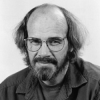Jack Horner

Jack Horner
John R. "Jack" Horneris a non-degree holding American paleontologist who discovered and named Maiasaura, providing the first clear evidence that some dinosaurs cared for their young. He is one of the best-known paleontologists in the World. In addition to his many paleontological discoveries, Horner served as the technical advisor for all of the Jurassic Park films, had a cameo appearance in Jurassic World, and even served as partial inspiration for one of the lead characters, Dr. Alan Grant. He studied...
NationalityAmerican
ProfessionScientist
Date of Birth15 June 1946
CityShelby, MT
CountryUnited States of America
where it actually goes from land into the water.